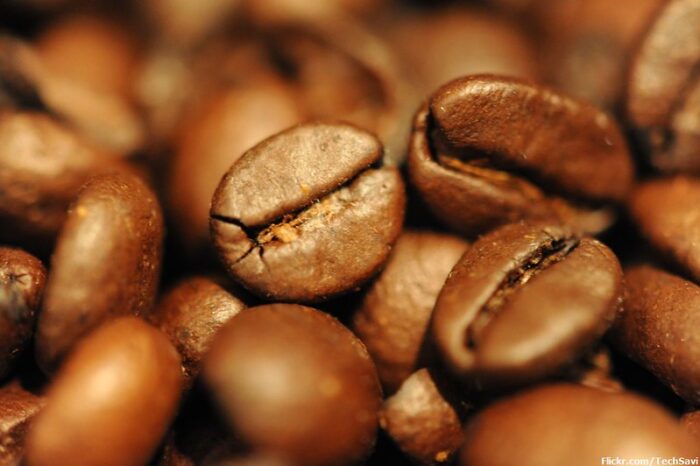
GM/Biotech Crops Report – May 2023
5th May 2023- GM/Biotech Crops Monthly Reports (BELOW) form part of BCPC’s free three-tier Biotech Crops Info service.
- This service also includes a weekly round-up of news from around the globe – see BCPC Newslink GM Crops section.
- Plus – Free access database on over 300 GM/biotech products covering 23 crops in the global market visit BCPC’s GM/Biotech Crops Manual – Register here for free access.
- Already registered? Click here
GM/Biotech Crops Monthly Report May 2023
A new coffee on the shelves?
 Arabica beans make the best coffee but the plants are tender and hard to establish but a related coffee species, Liberica, can handle heat and drought more easily and so, as the world climate hots up, we may be forced to switch to these hardier beans.
Arabica beans make the best coffee but the plants are tender and hard to establish but a related coffee species, Liberica, can handle heat and drought more easily and so, as the world climate hots up, we may be forced to switch to these hardier beans.
Pic: Chris
New vaccine for malaria
Following on from the success of developing a vaccine for Covid-19, Oxford University has combined a hepatitis B virus with proteins from the malaria parasite to make a vaccine that in initial trials is 80% effective – better than the current similar vaccine developed by GSK. Larger scale trials are underway but Ghana is rolling out the vaccine immediately.
https://www.bbc.co.uk/news/health-62797776
https://www.bbc.co.uk/news/health-65252511
Cancer vaccines?
The Francis Crick Institute has discovered relics of ancient viruses hiding in human DNA and has determined that they can help the immune system target cancer cells as they develop. They are now using this knowledge to develop better anti-cancer vaccines that target the cancer cells or even possibly prevent cancer from developing in the first place.
A step backwards?
The president of Mexico has been elected on a platform of proposals that includes banning glyphosate and GM crops in a country that has previously adopted them. More worryingly, Mexico is the sales point of around 40% of the GM Maize grown in America and if this outlet is closed, many Mexicans could go hungry and GM maize production in America will either have to find new sales outlets or scale back productio.
Drought-resistant tomatoes
Israeli scientists at the Hebrew University of Jerusalem have crossed a commercial variety of tomato with a wild relative found in the Peruvian desert to produce a variety that gives 20 – 50% more yield in both normal and dry conditions. They are using this success to identify which parts of the genome are responsible for these benefits.
Improved alkaline tolerance
Scientists in China have identified the gene involved with alkaline soil tolerance in monocot plants such as sorghum and aim to develop varieties more suitable for growing on the billions of hectares of alkaline soils around the world.
Gene-edited crops in Japan
Japan has confirmed that cultivation of a gene-edited variety of maize with an elevated wax content is allowed without the need to gain approval under their GM plant approval system first. This is the 4th gene-edited crop that Japan has adopted without first going through an approval process.
New grain approved
A gene-edited semi-dwarf variety of Teff produced by the Donald Danforth Plant Science Centre has been approved for cultivation in the USA. Teff is a native grain from Ethiopia where it is widely cultivated and produces two-thirds of the protein and dietary fibre consumed in the country.
E-coli in pigs
Just like humans, pigs can suffer from diarrhoea when infected with strains of E.coli bacteria but now a team or researchers in Italy have genetically engineered seeds of tobacco to produce an oral vaccine that can be given to piglets to avoid the devastating effects of infection. I wonder when they will develop it for humans?
Non-browning bananas
First it was apples but now a non-browning banana has been developed in the Philippines using gene-editing techniques. Since an estimated 60% of harvested bananas turn brown before they even reach the final market this is seen a s potential big increase in the efficiency of banana cultivation.
Plant-based Covid-19 vaccine
Tobacco seeds seem the most popular option for plant vaccine development. Besides the E.coli vaccine for pigs mentioned above, tobacco seeds have also been used to develop a Covid-19 vaccine that has been tested in rabbits. It has proved to be effective against both the Delta and the new virulent Omicron strains of the virus.
Pheromones for moths
Researchers at the Earlham Institute in Norwich have also used tobacco to artificially produce moth sex pheromones that the moths use to find each other and produce lots of little caterpillars to eat our crops. Flooding a field with these pheromones confuses the males and makes it difficult for them to find females but, more subtly, they could be used in sticky moth traps to monitor populations and help accurately time the application of insecticides.
THE LATEST ADDITIONS TO THE GM/BIOTECH DATABASE ARE:
The latest approvals of biotech crops to report this month:
• HB4 Wheat with improved drought tolerance approved for food and feed use in Columbia and Nigeria.
• MON94100, oilseed rape with tolerance of dicamba approved for food use in Canada and food & feed use in America.
FOR INSTANT ACCESS TO GM BIOTECH MANUAL CLICK HERE (Registration required)
Already Registered? Click here to access

